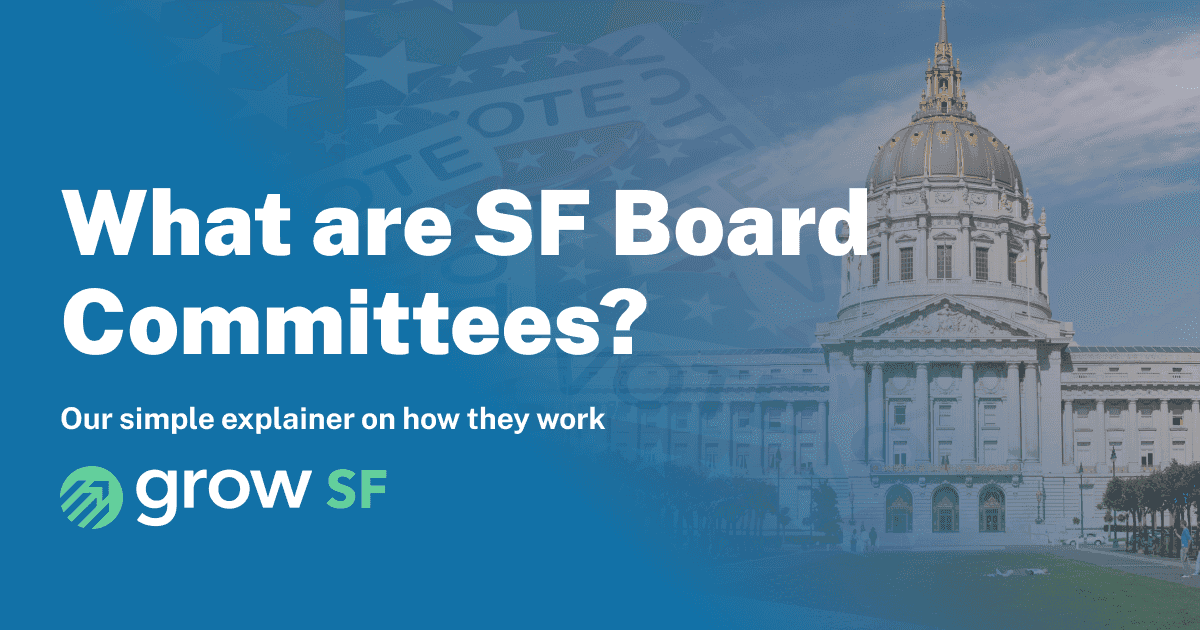What are San Francisco Board Committees?
January 16, 2024
There are eight Board Committees and each plays a crucial role in the legislative process. New legislation is reviewed and amended by the committee, and two votes are needed for it to advance to the broader Board of Supervisors for a final vote.

The San Francisco Board of Supervisors has 11 members who vote on legislation that determine how San Francisco operates. However, before legislation gets to the full board, it usually passes through a Board Committee.
There are eight Board Committees and each plays a crucial role in the legislative process. SF Board Committees include Budget and Finance, Rules, Government Audit and Oversight, and Land Use and Transportation. Here's the complete list of committees including who is on each.
Three members of the Board of Supervisors sit on each committee, with one of the three serving as the chair. New legislation is reviewed and amended by the committee, and two votes are needed for it to advance to the broader Board of Supervisors for a final vote.
Therefore, who is on each committee has an enormous, outsized influence on the laws governing San Francisco. These committees are created by the President of the Board of Supervisors. This single individual has the authority to select committee members and appoint chairs, giving them incredible power. The Board President is elected by the Supervisors themselves, making it another way that the current progressive majority exercises power above and beyond the number of Supervisors who vote a given way on a piece of legislation.
Case in point: Board President Aaron Peskin removed Matt Dorsey from the Rules Committee before Dorsey’s term had finished. Peskin doesn’t prioritize public safety efforts, and so he wants a Rules committee that doesn’t pass legislation around safety, potentially making SF less safe.
This highlights the power of the Board (we are not a Strong Mayor city) and the importance of having a common-sense majority on the Board of Supervisors. Only with such a majority will the Board elect an outcomes-oriented Board President, and only then will we have committees that actively work towards improving the city rather than impeding its progress.
Sign up for the GrowSF Report
Our weekly roundup of news & Insights